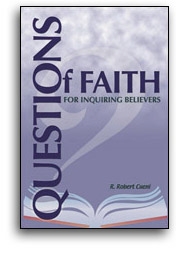SermonStudio
What's Important About Going To Church?
Bible Study
Questions Of Faith For Inquiring Believers
Imagine that you have out-of-town company. On Saturday night you inform your guests that you plan to go to church on Sunday morning. You invite them to go with you. These folks, however, are "not from around these parts." They don't attend church. In fact, they never heard of the practice. They come from a country where people do not participate in organized religion. These guests don't object to attending with you, but they want to know more about the practice. How do you describe a church service? What do you tell them about why you go?


